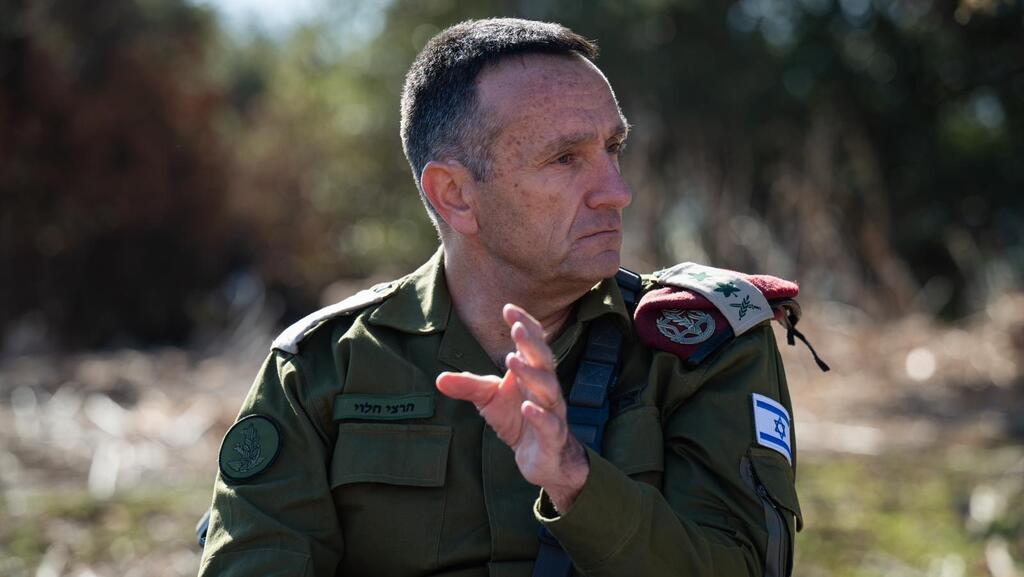Getting your Trinity Audio player ready...
The IDF on Wednesday presented its findings to the families of six hostages killed in a tunnel in Khan Younis, Gaza, earlier this year. The investigation, also shared with IDF Chief of Staff Lt. Gen. Herzi Halevi, revealed that Alex Dancyg, Yoram Metzger, Haim Perry, Yagev Buchshtav, Nadav Popplewell, and Avraham Munder were fatally shot by their captors in February.
According to the findings, the hostages were likely executed in response to an IDF airstrike targeting nearby infrastructure. The strike, approved in advance, took place on February 14, but the IDF was unaware at the time that the hostages were being held in the tunnel. Their deaths were confirmed in July.
The investigation also revealed that the hostages were not held together after their abduction. Dancyg, Perry and Buchshtav were initially imprisoned in a separate tunnel, referred to as the "Kingdom," which contained iron cages and synthetic grass. In late December, as the IDF advanced into Khan Younis, the three were transferred to a tunnel in the Qatari-funded Hamad neighborhood, where they joined Munder, Popplewell, and Metzger.
The February 14 airstrike targeted senior Hamas commanders in the vicinity of the hostages. The operation involved extensive planning and was approved according to IDF protocols. "In every operation with similar characteristics, we are extremely cautious to avoid harm to hostages. If we know hostages are present, we do not strike," an IDF official stated.
Six months later, on August 20, the IDF launched a mission to recover the hostages' bodies, based on intelligence from the Unit for Prisoners and Missing Persons. During the recovery, signs of gunshot wounds were found on the hostages' bodies, but the IDF emphasized the possibility — albeit remote — that other captors, not those whose bodies were discovered nearby, had executed them.
Footage from the bodies recovery in Khan Younis
(Video: IDF)
Six Hamas terrorists' bodies were also recovered from the tunnel, showing no gunshot wounds. They were believed to have died from toxic gases released as a secondary effect of the IDF strike.
IDF Chief of Staff Herzi Halevi determined that the IDF and ISA had no intelligence regarding the presence of hostages in the area, and that, had such information been available, the strike would not have been carried out.
Halevi emphasized the importance of continuing to operate in accordance with the updated strike protocols implemented after this tragic and difficult event.
The Chief of the General Staff said: "In this prolonged war, which began on a very difficult day, the mission of returning the hostages alive accompanies us at every moment. We are making every effort to bring them back. We have made significant achievements, but it is small so long as there are other hostages. The IDF is confident that the combat advances their return, but in the context of combat we have also made mistakes – we are not able to bring these hostages home alive.
"It is important for the families of the hostages and the entire public to know that thousands of soldiers and commanders are working to succeed and avoid mistakes in this critical mission. Every mistake that occurred was due to lack of knowledge, and we are committed to learning from these mistakes."
Families demand accountability
Elia Dancyg-Lichtman, the granddaughter of Alex Dancyg, expressed grief and frustration following the report.
"The bottom line is that the IDF is responsible for their deaths. They didn't know hostages were in the tunnel and targeted it because of Hamas commanders. This was a severe mistake," she said, adding that the military asked the families for forgiveness.
She continued, "The IDF didn’t ensure there were no hostages in the area before attacking. This war is killing them. My grandfather can’t be brought back, but the military must now do the right thing."
Ofri Perry, the daughter of Haim Perry, echoed similar sentiments, saying, "We waited for the investigation because every detail matters, but we now know that my father died directly or indirectly because of the IDF's actions. The nightmare scenario we feared has come true."
She described the harrowing conditions in which the hostages were held: "The images of the tunnel and the inhuman conditions are horrifying. The suffering they endured is a crime against humanity. The urgency to rescue those still held cannot be overstated."
The Hostage Families’ Forum urged the Israeli government to shift its strategy.
"The findings confirm that military pressure endangers the hostages. It’s time to prioritize their safe return, using diplomatic and political means rather than relying solely on military operations," the forum stated.
Residents of Kibbutz Nir Oz, home to several of the victims, issued a similar appeal: "The hostages are not military targets. They are family members—fathers, mothers, and children who need us. Bring them home with all available tools. It is the moral and national duty of our leaders to act now."
Get the Ynetnews app on your smartphone: Google Play: https://bit.ly/4eJ37pE | Apple App Store: https://bit.ly/3ZL7iNv
Meanwhile, Reuters reported on an internal Hamas document warning its operatives to brace for a potential Israeli rescue mission, similar to one conducted in June. The document instructed Hamas to "tighten" conditions for the hostages and warned that any Israeli attempt to extract them would lead to their "neutralization." Hamas emphasized that Israel would bear full responsibility for the hostages' fate.
These developments add urgency to the ongoing efforts to resolve the crisis, as families and communities across Israel continue to wait for the safe return of those still in captivity.






